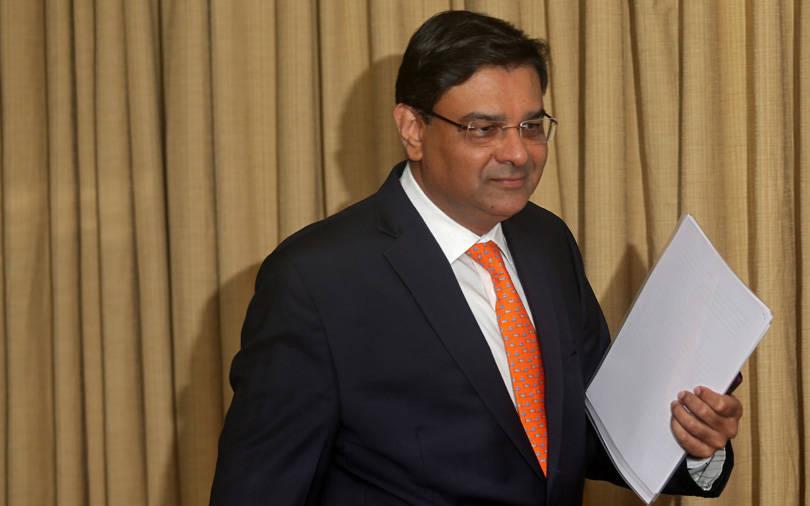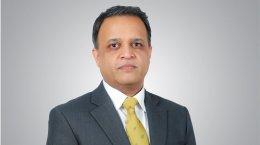Reserve Bank of India (RBI) governor Urjit Patel on Monday announced that he was leaving the post with immediate effect in a move that followed weeks of friction with the government over the central bank's autonomy.
"On account of personal reasons, I have decided to step down from my current position effective immediately," Patel said in a statement. "It has been my privilege and honour to serve in the Reserve Bank of India in various capacities over the years."
Patel’s resignation came a day before results from crucial state elections are declared on Tuesday and ahead of a central bank meeting on Friday,
His sudden exit could see the markets react negatively, especially with exit polls forecasting that the ruling Bharatiya Janata Party will suffer electoral losses in at least two of the four large states that went to polls recently.
"The markets were not prepared for this. Tomorrow is also a day of political uncertainty,” said Lakshmi Iyer, chief investment officer-fixed income at Kotak Mahindra AMC. “I don't think the markets may take this very kindly, especially the dollar and rupee.”
The rupee was closed for trading when Patel announced his departure, but forward contracts tracking the performance of the currency against the dollar outside of market hours posted their biggest fall in more than five years.
Before the announcement, the 10-year benchmark Indian government bond yield rose the most since September, and stocks posted their worst close in four weeks with the broad NSE index losing 1.9 percent.
Weeks of fighting
Patel’s decision to quit came in the backdrop of the Prime Minister Narendra Modi-led government putting pressure on the RBI to ease its regulatory curbs on some banks, increase liquidity and relax capital norms as it faces a slowing economy ahead of general elections due by May.
The rift between the two had widened after RBI deputy governor Viral Acharya, in a speech on October 26, warned that undermining central bank independence could be "potentially catastrophic".
A marathon RBI board meeting in November avoided any direct confrontation on the question of the central bank’s autonomy. At the heart of the matter is Section 7 of the RBI Act, which effectively allows the central government to dictate terms to the central bank, but has never been invoked till date.
Following speculation that Acharya would also step down, the RBI clarified that he has not resigned, reported television channel CNBC TV18.
After Acharya’s speech in October, economic affairs secretary Subhash Garg had said that he was “disappointed” by the deputy governor’s words, and that Acharya’s remarks created a “false sense” that “something is wrong".
The administration has stacked the RBI's 18-member board with its own nominees, in what critics say is a move to exert greater control over the central bank's regulatory powers.
There was speculation a month ago that Patel might quit over the government pressure, but the rumours eased after the government and central bank reached an uneasy truce ahead of the RBI board meeting last month.
Autonomy was just one of several issues that pitted Patel against the government. In fact, not only had he been firefighting loan defaulters, he had also had several run-ins with the government on the issue of interest rates.
Under Patel, the RBI, led by a six-member Monetary Policy Committee, raised interest rates twice this year as it sought to counter inflation amid rising global crude prices and a depreciating rupee.
At least 12 banks — including 11 state-owned ones — attracted Patel’s wrath, as the central bank not only imposed lending curbs but also restricted them from expanding their networks and distributing dividends to shareholders.
Even as he fought to keep the RBI autonomous, Patel also sought to keep the government’s hands off the central bank’s surpluses, after the finance ministry reportedly demanded a greater share of its profits.
And although Patel did not object to the government’s move to demonetise high-value currency notes on 8 November, 2016, much to the chagrin of several leading economists, the RBI under him took an activist stance on various issues and oversaw the exit of several high-profile bankers including ICICI Bank’s Chanda Kochhar, Axis Bank’s Shikha Sharma and Yes Bank’s Rana Kapoor.
Who said what
“According to me, Patel should have resigned on 19 November [date of RBI meeting] when the government had humiliated him. Am glad that he did not go to another humiliating meeting,” former finance minister P Chidambaram said in a TV interview. “The credibility of the RBI was damaged on 8 November, 2016 (the day of demonetisation).”
Patel had taken over as RBI governor in September 2016, three months before demonetisation, and was slated to serve a three-year term.
"This is something all Indians should be concerned about," Raghuram Rajan, Patel's predecessor as RBI governor, was quoted as saying by Reuters after Patel’s announcement on Monday.
In a tweet posted shortly after Patel's resignation, Prime Minister Narendra Modi called him a "thorough professional with impeccable integrity".
"He leaves behind a great legacy. We will miss him immensely," said Modi. "He steered the banking system from chaos to order and ensured discipline. Under his leadership, the RBI brought financial stability."
Rashtriya Swayamsevak Sangh (RSS) ideologue and RBI board member S Gurumurthy said that he was “surprised” at Patel’s resignation.
“The previous meeting was held in such cordial atmosphere that it comes as a shock. All directors said media had created a wrong perception while inside it was totally different. That makes it even more surprising," he said.
The principal opposition Congress party said that Patel’s resignation could spell trouble.
“The government is getting more and more desperate. It is taking measures that are dangerous for our country,” Congress president Rahul Gandhi said.
Some market watchers said that there could be political triggers for Patel’s exit, especially with the 2019 general elections looming.
"We had this row between the government and the central bank over independence, we thought it had faded but it seems not," Viktor Szabo, senior investment manager at Aberdeen Standard Investments, said. "Perhaps it plays into the pre-election campaign for next year, that is something that we will be watching really closely."
Patel, a graduate from Yale and Oxford universities, had earlier worked with the International Monetary Fund, the Boston Consulting Group, Reliance Industries and the Infrastructure Development Finance Corp. This was his second stint at the RBI.
During his previous innings, Patel headed the panel on Monetary Policy Framework, which, in January 2014, recommended that inflation should be the variable that should define the monetary policy framework.
(With inputs from Reuters)






